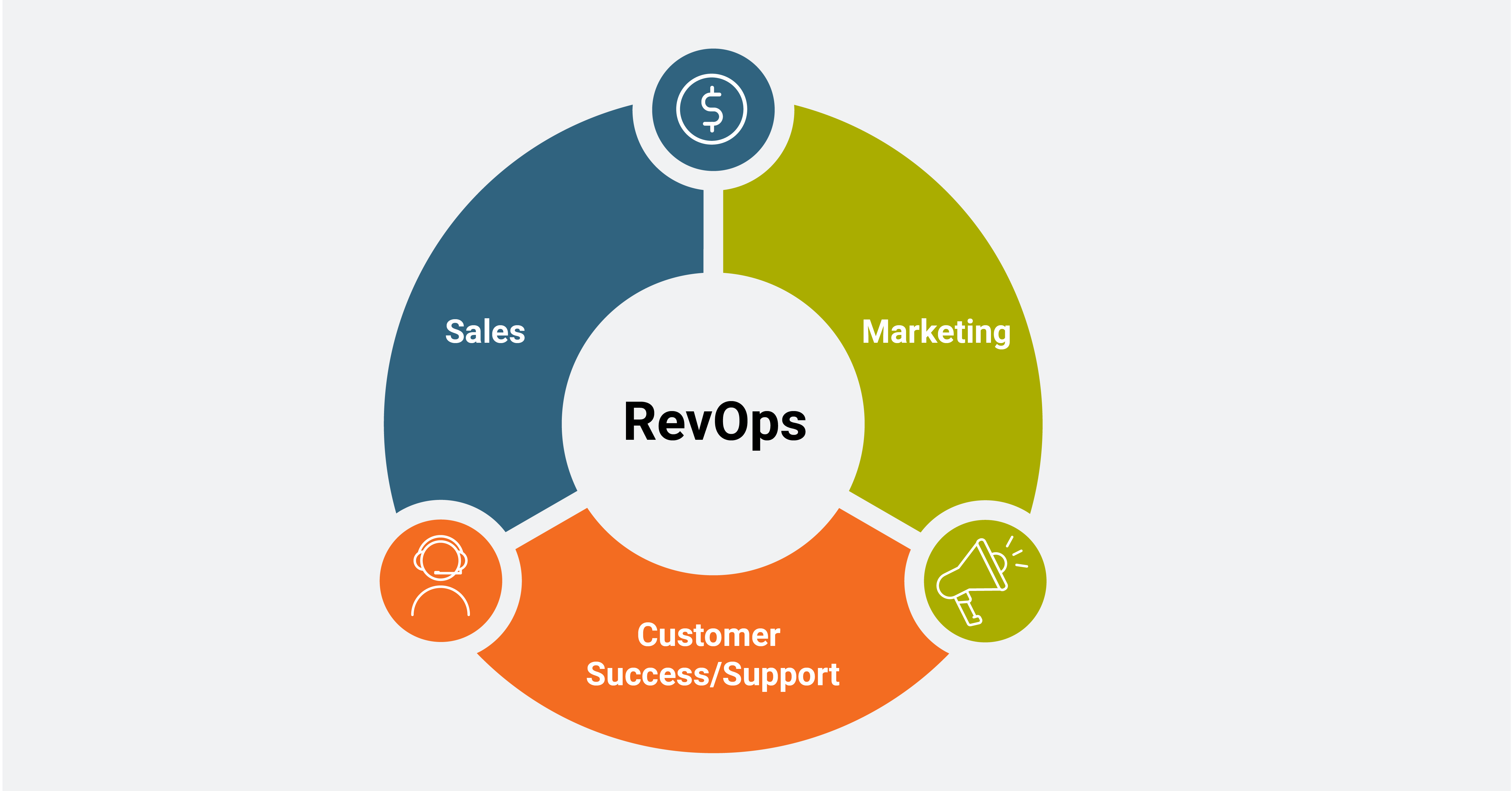
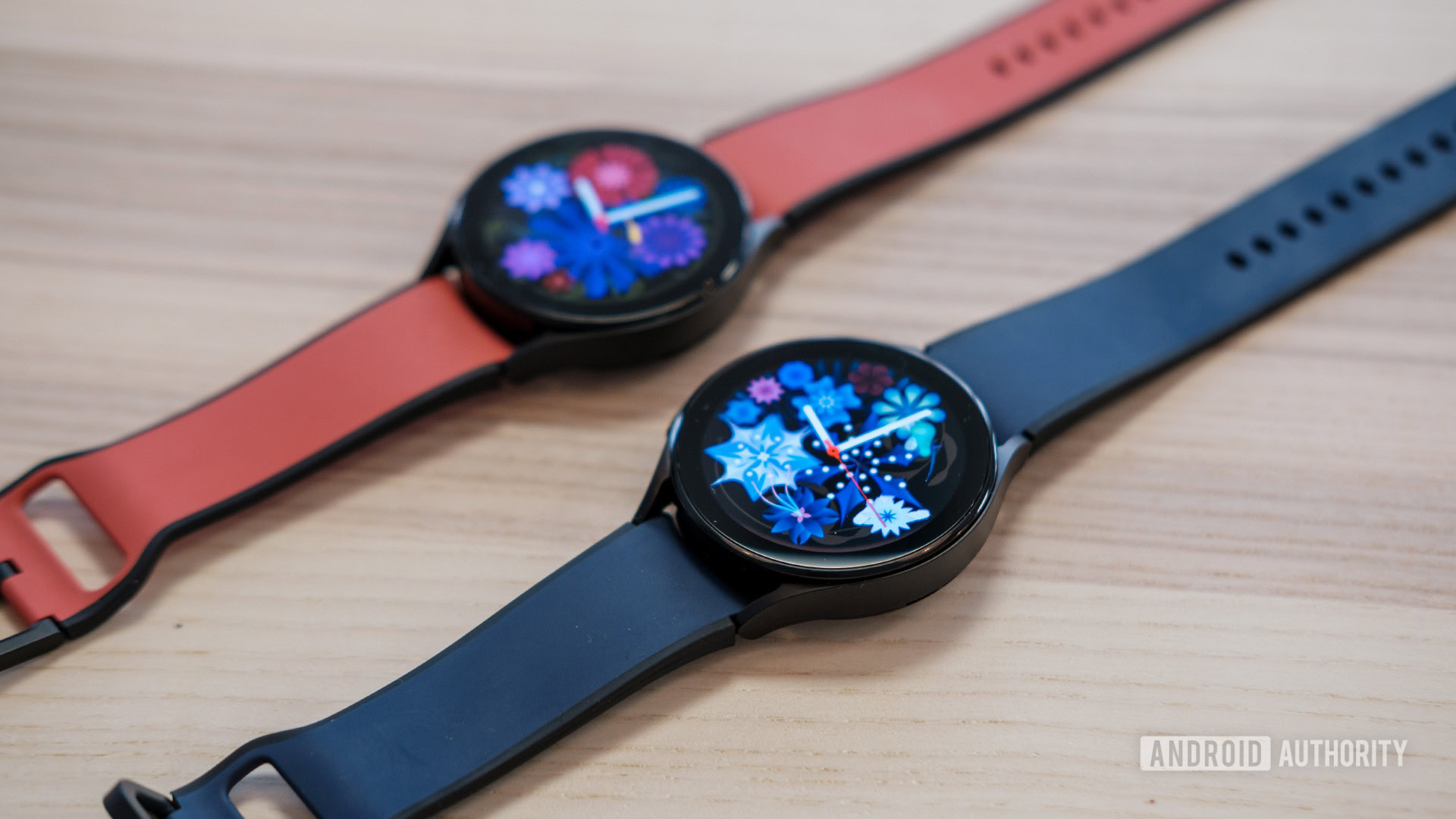
Robert Triggs / Android Authority
We’re primarily a smartphone-focused website here at Android Authority, but wearables are a pretty important category for us as well. As a result, we review loads of fitness trackers and smartwatches every year from a variety of brands.
It’s one thing to review a wearable but another matter entirely to use it every day. So we asked Android Authority team members about the wearables they regularly use. A total of 18 team members took part in our poll, noting the wearable they’re currently using (if any), their likes/dislikes, and giving it a score out of 10.
The results
We’ve published the results as both individual models and as brands. We’ve taken the “none” option into account for our first infographic, but our second, brand-based breakdown doesn’t include “none” as you’d expect. You can view the charts below for a glance at the results, but we’ve also got a full rundown in the next section.
Going wearable-free
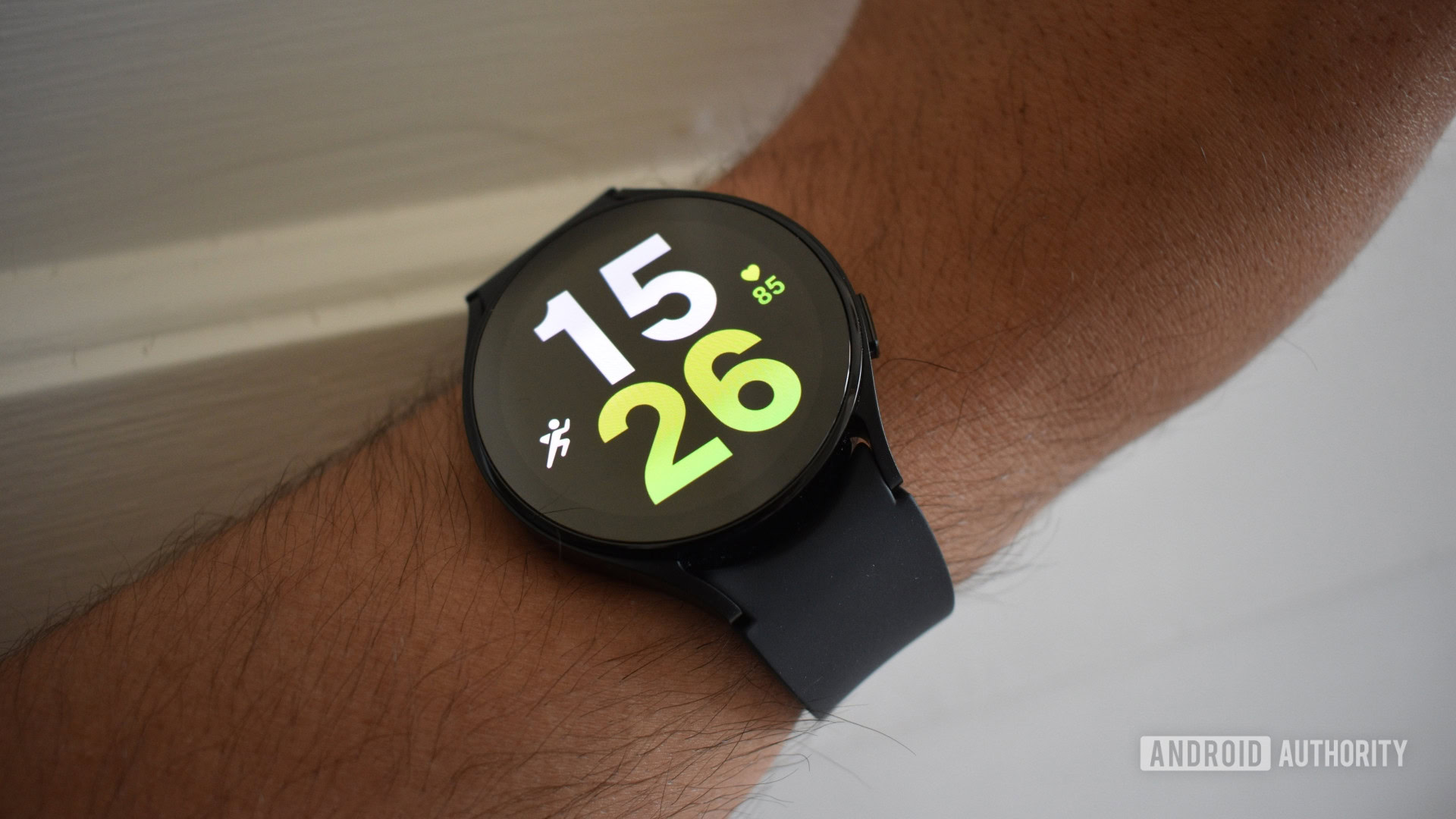
Andy Walker / Android Authority
Looking at our first chart, it’s clear that a significant number of my team members don’t bother wearing a wearable. Almost a third said they didn’t use a smartwatch or fitness band daily.
Some of these respondents elaborated on their reasons, noting that they either haven’t found a use for a wearable or that it doesn’t match up to their lifestyle. In fact, Deals Editor Matt Horne outlined the only reason why he’d ever buy a wearable:
Unless one becomes available that does something amazing that my phone doesn’t (And I mean AMAZING, like letting me teleport or fly) then I won’t be getting one.
In other words, Matt isn’t planning to buy a wearable any time soon.
Senior Features Editor Rob Triggs also outlined his reasoning for not wearing a watch or tracker every day:
I wore an old Fitbit tracker for a while but ended up forgetting about it because I’m so inactive.
I’m pretty much in the same boat, as I’ve got a Suunto 7 but can’t justify wearing it when I’m not active to begin with.
Samsung brings the wearables
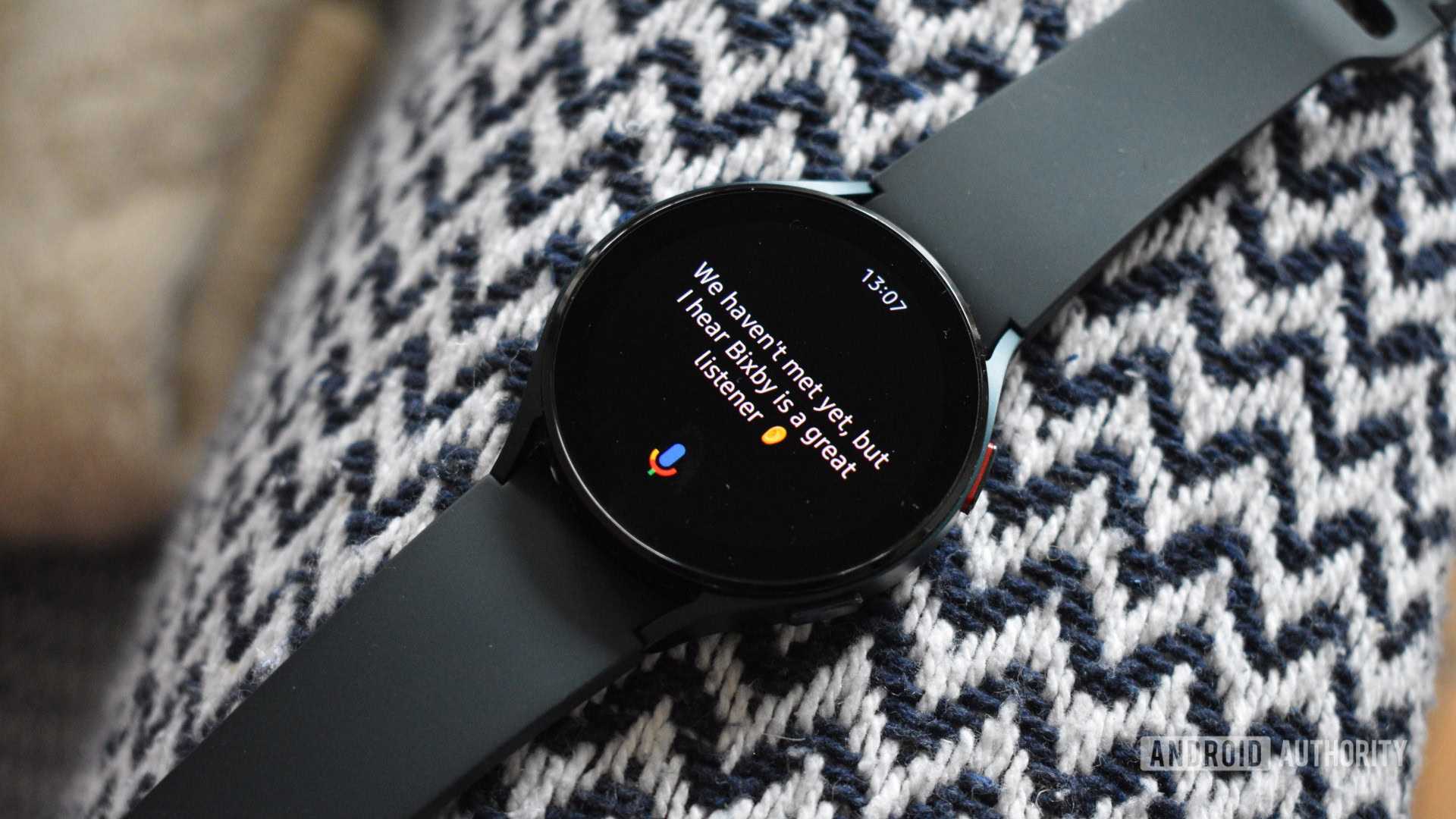
Andy Walker / Android Authority
As for Team AA members who actually wear these devices every day, it turns out that Samsung is the most popular brand at 38.46%. Technically speaking, four of my colleagues said they wore Samsung watches. But Features Writer Calvin Wankhede cheekily noted that he used two Samsung watches as his daily drivers, bringing the total number of devices to five.
Samsung was a popular pick in our daily driver smartphone article, and we see a repeat in our wearable survey.
We saw an interesting mix of watches in this regard, namely the Galaxy Watch 4, Galaxy Watch 5, Gear Sport, and Gear S3 Frontier. It’s worth noting that the latter two devices are more than three years old and still use Samsung’s Tizen OS. The Gear S3 Frontier was one of Calvin’s watches and he praised the two-day battery life after all this time, as well as the rotating bezel.
Meanwhile, SEO specialist Luka Mlinar had positive things to say about the Tizen-based Gear Sport as well.
The wireless charging cradle is by far the best design on the market. Also, for a five-year-old device, it’s holding up really well. It’s fairly robust and supports standard size watch bands.
As for the more modern Galaxy Watches, some users praised the design and battery life. But there were a few complaints about these wearables too, such as the large size. In fact, battery life also popped up as a complaint, suggesting that use-cases might have a part to play here.
Apple is no slouch, either
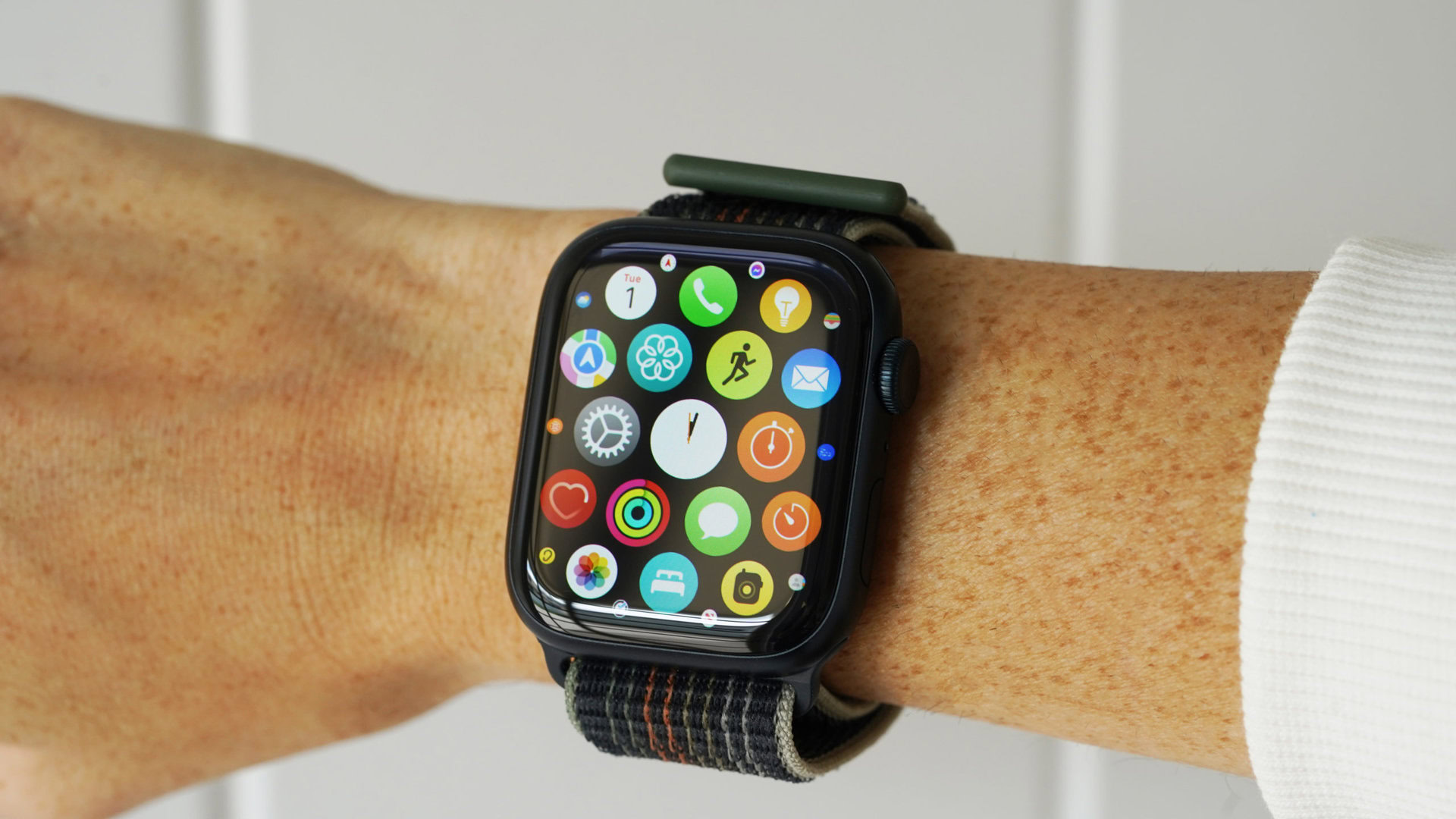
Kaitlyn Cimino / Android Authority
The Cupertino company also accounted for its fair share, with almost a quarter of wearable-toting Team AA members using an Apple Watch. The Series 8 was the most popular option, but we also see a Series 5 device in the mix.
These users praised the tracking options, with How-To Editor Mark O’Neill specifically pointing to the heart-rate tracking and stress monitoring features. Senior Writer and wearable enthusiast Kaitlyn Cimino also had more to share:
The integration between the Apple Watch and iPhone is seamless and the user experience is very straightforward from setup through daily use. There’s an app for seemingly anything I need. I also like the square shape which fits tons of onscreen text.
It wasn’t plain sailing though, as Kaitlyn criticized the battery life even when using the low-power mode. It seems like sleep tracking functionality could also do with some improvement, as Senior Brand Manager Sarah Clary explained:
If you sleep in it, the light comes on when you move in your sleep, even if it knows you’re in ‘sleep focus’ mode. Super disruptive and annoying. Sometimes it gets stuck in a zoomed in mode, too, and has to be restarted.
Fitbit and Garmin represent
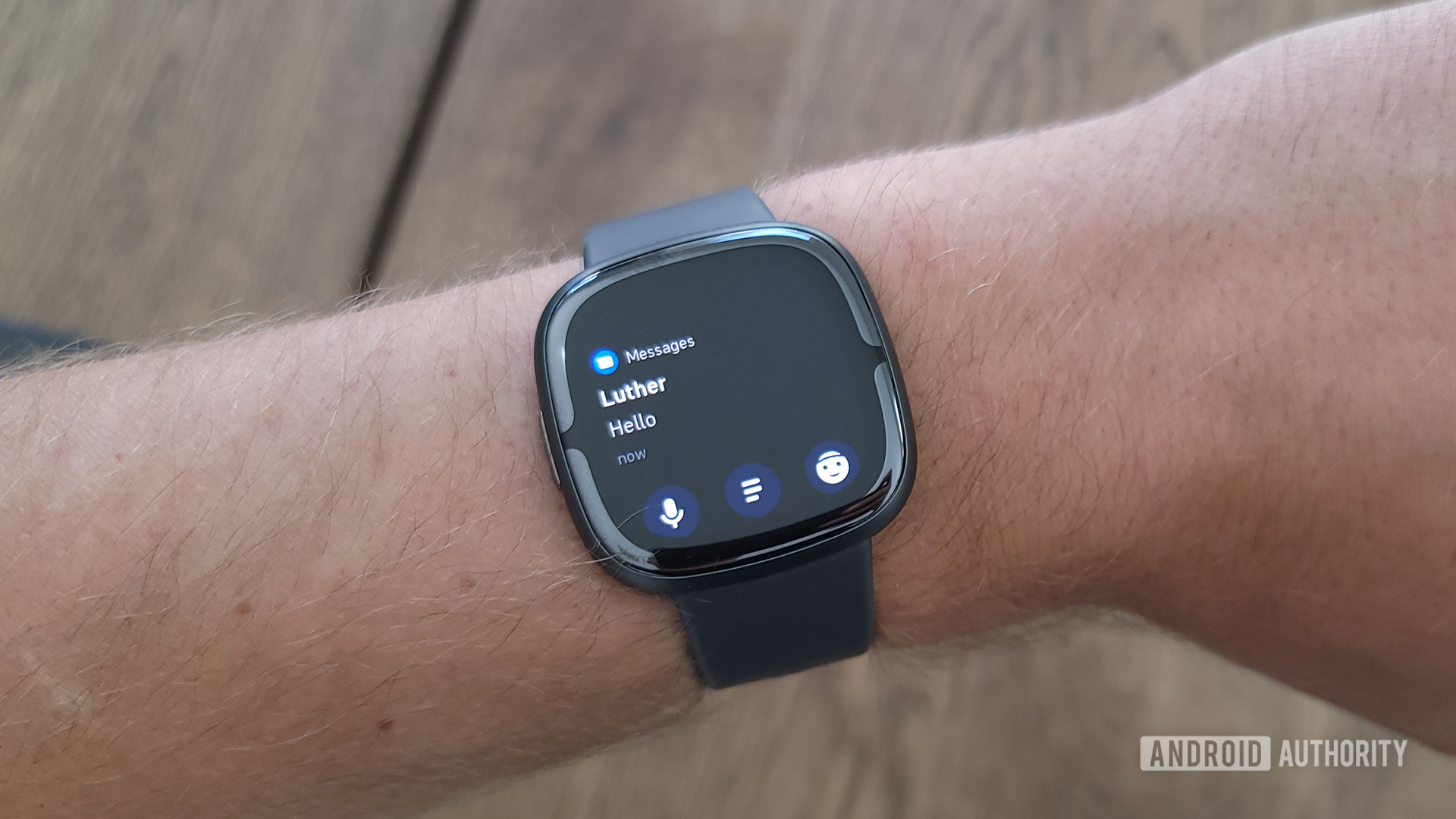
C. Scott Brown / Android Authority
Second notification
Editor C Scott Brown heaped praise on the original Sense, calling it the best wearable he’s ever used. He added that it was “almost perfect” and way better than its successor.
Speaking of the Sense 2, News Writer Andy Walker felt it had a great, comfortable design and offered good basic tracking.
But Andy bemoaned the Sense 2 cutbacks as well:
It doesn’t feel like a huge step up from the Versa 2, and surprisingly lacks some useful features, like music controls and on-device clock face switching too.
Only one Google Pixel Watch
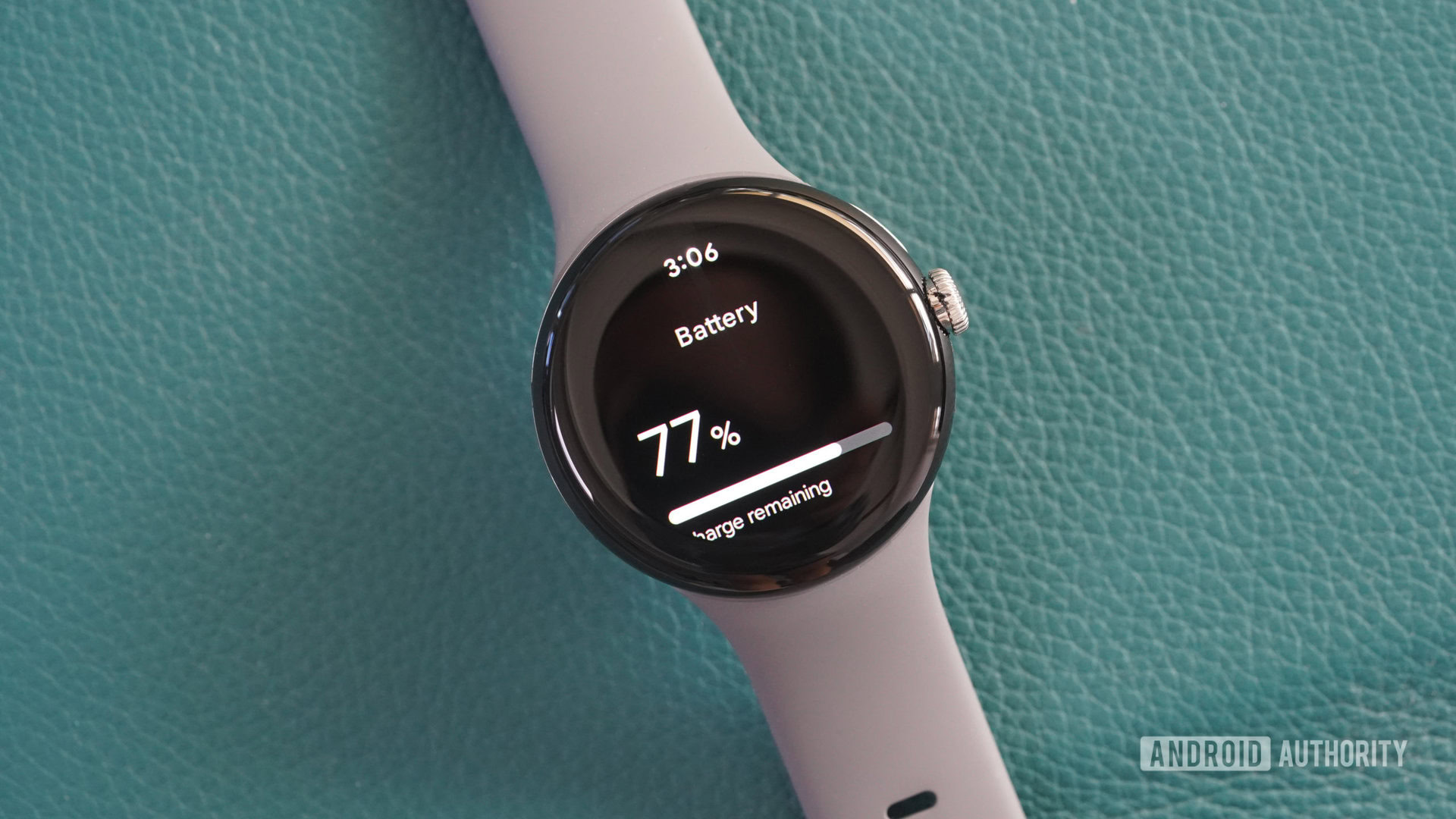
Kaitlyn Cimino / Android Authority
It’s still early days for Google’s first smartwatch, but Features Editor Rita El Khoury is the only person on the team to regularly use the Pixel Watch. Rita praised the watch for its beautiful design that doesn’t snag on clothes, the “smooth and simple” software experience, and integrated Fitbit health tracking.
Only one Pixel Watch appeared in our Team AA wearable poll.
Google’s watch isn’t perfect, with Rita pointing to a couple of areas that need some drastic improvement:
Battery life! But also all the little missing things from Wear OS, like the lack of transit directions in Google Maps or inability to control music cast around the house.
It’s still early days for Google’s first smartwatch, so it’s entirely possible we’ll see more Pixel Watches among the team a year from now.
Other takeaways
- The lowest rating was bestowed upon the Fitbit Sense 2 and Galaxy Watch 4, with Scott and Calvin respectively giving them six out of 10.
- None of these watches received full marks from their owners, but three devices received nine out of 10. They were the Fitbit Sense, Garmin Forerunner 955 Solar, and Apple Watch Series 8.
- Three polled team members said they wouldn’t recommend their current wearables. They were Andy (Fitbit Sense 2), Rita (Pixel Watch), and Luka (Samsung Gear Sport). We’re guessing that Andy’s decision is simply due to the Sense 2 being a downgrade over the original model. Rita, on the other hand, said she didn’t think the Pixel Watch was worth it for the price and that you were better off waiting for a next-generation effort. Meanwhile, Luka said this wasn’t a simple yes/no question, but felt the Gear Sport was tougher to recommend if you didn’t have a Samsung phone.
- It’s also interesting to note that we didn’t see a smartwatch or band from any lower-profile player here. No Amazfit, OnePlus, Oppo, Huawei, or Xiaomi among our team members.
- Is it any surprise to hear that ~85% of these smartwatches tote OLED screens? The two listed Garmin wearables sport memory-in-pixel (MiP) displays.
- Only one of these watches doesn’t offer user-accessible storage. That’s the Fitbit Sense 2, which is a bizarre omission when the first-gen model offered storage for music and more.
We also asked the team about their future wearable purchases, and a massive two-thirds of respondents said they had no plans to buy one. Some of these voters got a new wearable in recent months, so it makes sense to not be in the market for another one just yet. But there were also a few team members who didn’t have a wearable to begin with and had no desire to jump on the bandwagon in the future.
As for those who expressed an interest in upgrading to a specific watch, three people had their eyes on a Garmin watch. Otherwise, we also got three voters who were keen on a Fitbit watch, Pixel Watch 2, and Apple Watch Ultra respectively. Either way, it’s interesting to see Garmin wearables accounting for the most nods here.
Nevertheless, these results are in sharp contrast to our 2022 daily driver smartphone poll. Only two voters in that poll said they had no plans to buy a new phone just yet. This is another anecdotal sign that the wearable market moves at a much slower pace than the smartphone market.

